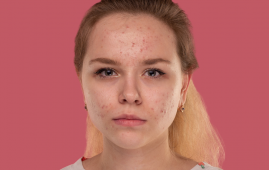

A long-term study conducted by UC Davis Health researchers gives fresh light on the association between autistic features and middle childhood mental health. According to the study, which was published in the journal autistic, changes in core autistic traits are associated to whether children develop additional mental health difficulties over their primary school years. “Our findings suggest that different aspects of a child’s development may affect each other over time,” said Einat Waizbard-Bartov, the paper’s lead author and a PhD researcher in developmental psychology at the UC Davis MIND Institute. “Core autism traits and mental health challenges likely interact throughout development.”
A crucial finding was that a decrease in restricted and repetitive behaviors throughout elementary school was associated with the rise of mental health difficulties, providing credence to the hypothesis that these behaviors may help autistic individuals. An increase in social communication difficulties was also connected to anxiety and other mental health issues during this time period.
“Our findings suggest that different aspects of a child’s development may affect each other over time. Core autism traits and mental health challenges likely interact throughout development.”—Einat Waizbard-Bartov, doctoral researcher in developmental psychology
Previous research by Waizbard-Bartov has shown that autism traits can alter dramatically between the ages of 3 and 11.
The latest study included 75 autistic children aged 6 to 11, including 15 girls. All were participants in the MIND Institute’s Autism Phenome Project, a big, long-term study aiming at discovering different subtypes of autism.
The research team assessed the children’s mental health symptoms and restricted and repetitive behaviors, which can include seeking sensory stimulation, hand-flapping, or sticking to predefined routines, using parental interviews and questionnaires.
They used the Autism Diagnostic Observation Schedule Calibrated Severity Score to track changes in autism features.
A fifth (21%) of the adolescents experienced more severe social-communication difficulties, as well as an increase in anxiety, ADHD, and behavioral issues. By age 11, roughly 23% had reduced restricted and repetitive behaviors but increased anxiety. Almost everyone — 94% — matched the criteria for an anxiety condition.
A third of the subjects exhibited decreased limited and repetitive behaviors as well as increased social-communication difficulties.
“We were pleased to see that our results confirmed what has been suspected by other autism researchers and clinicians as well as autistic individuals, that some forms of restricted and repetitive behaviors can potentially help to self-soothe,” said David Amaral, distinguished professor in the Department of Psychiatry and Behavioral Sciences, MIND Institute faculty member and senior author on the paper.
According to Waizbard-Bartov, the findings call into doubt the efficacy of therapy that aim to remove these tendencies.
“In light of this, when thinking about interventions, it might be that trying to eliminate repetitive behaviors without providing alternative self-soothing tools is not the ideal way to go,” she said.
“We were pleased to see that our results confirmed what has been suspected by other autism researchers and clinicians as well as autistic individuals, that restricted and repetitive behaviors can potentially help to self-soothe.”—David Amaral, distinguished professor in the Department of Psychiatry and Behavioral Sciences
To the best of the authors’ knowledge, this is the first study to show a link between mental health issues and increased severity of social-communication impairments in autistic children.
“This occurred in children who had normal cognitive functioning and showed decreases in core autism traits during early childhood.” We don’t know why this happened right now. “One possibility is that they became aware of their social challenges as a result of their relatively high cognitive ability, which may have contributed to increased anxiety,” Amaral explained. “It’s definitely an area where we need more research.”
more recommended stories
 Early Brain Development: Gene Control Atlas Unveiled
Early Brain Development: Gene Control Atlas UnveiledAn atlas of the brain’s early.
 PLS Riskier in ABO Mismatched Lung Transplants
PLS Riskier in ABO Mismatched Lung TransplantsPassenger lymphocyte syndrome (PLS) is a.
 Lysosomal Function in Parkinson’s Disease Risk
Lysosomal Function in Parkinson’s Disease RiskThe genetic traits that affect the.
 Omega-6 Fatty Acid Role in Bipolar Disorder
Omega-6 Fatty Acid Role in Bipolar DisorderHigher concentrations of arachidonic acid, an.
 Transplant Drug Shows Promise in Slowing Alzheimer’s in Seizure Patients
Transplant Drug Shows Promise in Slowing Alzheimer’s in Seizure PatientsProtein imbalances, which heighten the excitability.
 Fentanyl Inhalation: Brain Damage Risks
Fentanyl Inhalation: Brain Damage RisksAfter treating a middle-aged man who.
 Enhanced Immune Response in New COVID-19 Vaccines
Enhanced Immune Response in New COVID-19 VaccinesAn improved vaccination offers an enhanced.
 Bioresorbable Wireless Sensor for Early Stomach Leakage Detection
Bioresorbable Wireless Sensor for Early Stomach Leakage DetectionIn a recent publication in Scientific.
 Neurocardiac Connectivity in Depression Treatment
Neurocardiac Connectivity in Depression TreatmentHeart rate deceleration and sadness may.
 Antioxidants: Impact on Quality of Life in Acne Vulgaris
Antioxidants: Impact on Quality of Life in Acne VulgarisA recent study published in the.

Leave a Comment